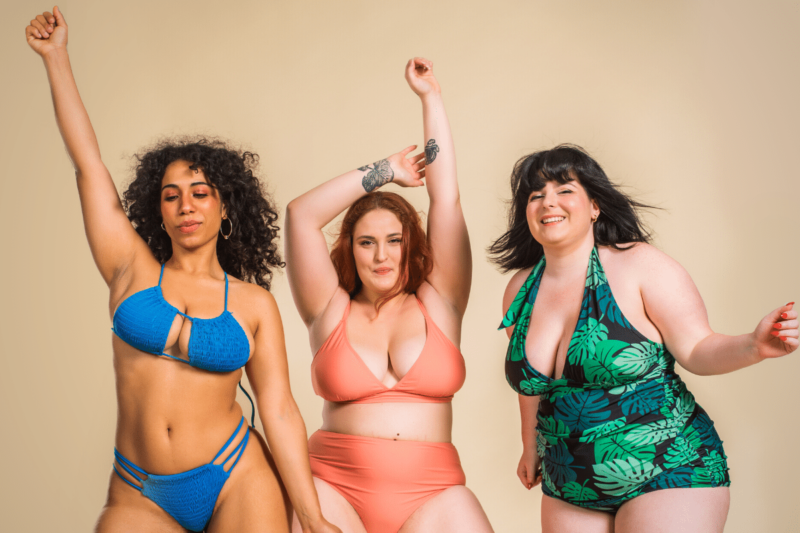What are your thoughts about “body positivity?
- “It’s wonderful! It changed my life!”
- “It’s an idea I’m working on incorporating into my life…and some days are better than others.”
- “Feel positive about THIS body? Yeah, right.”
- “If I feel positive about my body the way it is, I’ll have no incentive to exercise.”
I want to discuss the term “body positivity,” including why (I think) it’s great, on one hand, and problematic, on the other hand.
A brief body positivity origin story
“Body positivity” is a buzzy catchphrase, popular with Instagram influencers, advertisers, and diet companies. But the origins of the body positive movement run much deeper than its current commercialized manifestations.
Body positivity has its roots in late 1960s social justice movements created by and for people in marginalized bodies — particularly fat, Black, queer, and disabled bodies — to talk about the oppression they experience in society and fight back against discrimination in the workplace, doctor’s offices and other public settings.
1996 brought us The Body Positive, a Berkley-based nonprofit founded by two women, one an eating disorder therapist and the other a woman who watched her sister die of an eating disorder. The Body Positive works to end the harmful consequences of negative body image, especially among teens and young adults. These consequences can include eating disorders, anxiety, depression, substance abuse, cutting, suicide and relationship violence. (P.S. I have trained with them and became a licensed Be Body Positive facilitator in 2019.)
The idea of body positivity, as these women introduced it, is deep and real. It acknowledges how challenging it is to feel anything other than disdain or even hatred towards our bodies in the culture we live in. That’s the “great” part. Now for the “problematic” part.
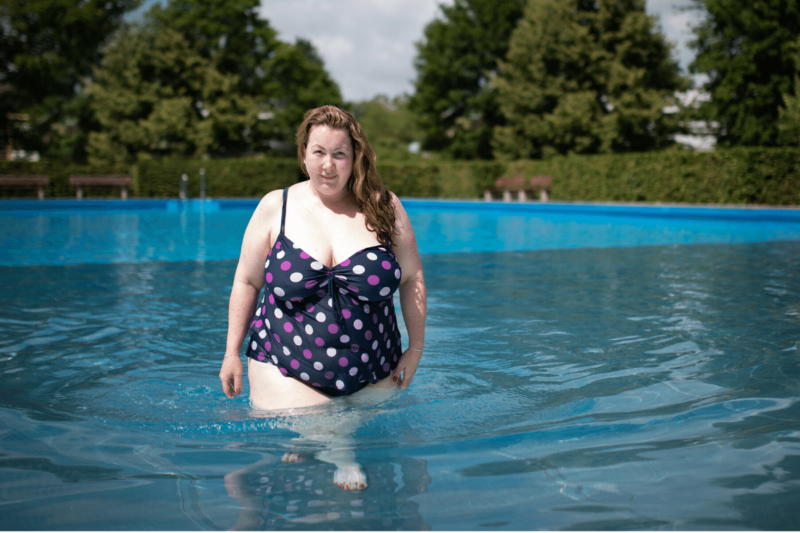
Taking a good idea, then watering it down
Like many good things, body positivity has been co-opted. The original body positive movement was about stopping appearance-based oppression, but the more modern manifestation is about expanding what’s viewed as beautiful. Not the same thing.
Flash forward to 2012 when influencer culture began to take hold of the idea of body positivity, first with plus-size influencers using #BodyPositive and #BoPo on social media, followed by thinner influencers who tended to focus on loving themselves despite body “imperfections” such as cellulite.
Another common type of image is young women in thin bodies showing a photo of the tiny roll of flesh — or maybe just skin — around their waist that appears when they are sitting down or bending over, with a caption about how much they “accept” or “love” their rolls.
You’ll even find many images of thin young women and men who clearly put a lot of time and energy into manipulating their body shape and size into what this culture deems attractive.
Now, people of all shapes and sizes can have horrible body image, and therefore can benefit from body positivity. However, the body positive movement was not intended to glorify six-pack abs. Heck, our society already does that! Taking body positivity in this direction brings the subtext that body positivity is only allowed for certain bodies. Is body positivity achievable? Not for most people, in this case.
And then there are corporations that want to capitalize on the trend. Many ad campaigns that claim to be body positive or use models with diverse body types actually don’t deviate a lot from traditional ad campaigns. This is characteristic of the modern, watered-down body positive movement, which largely embraces bodies that aren’t really thin, but are still straight size. These are people who can buy clothing in regular stores and don’t face discrimination at the doctor’s office.
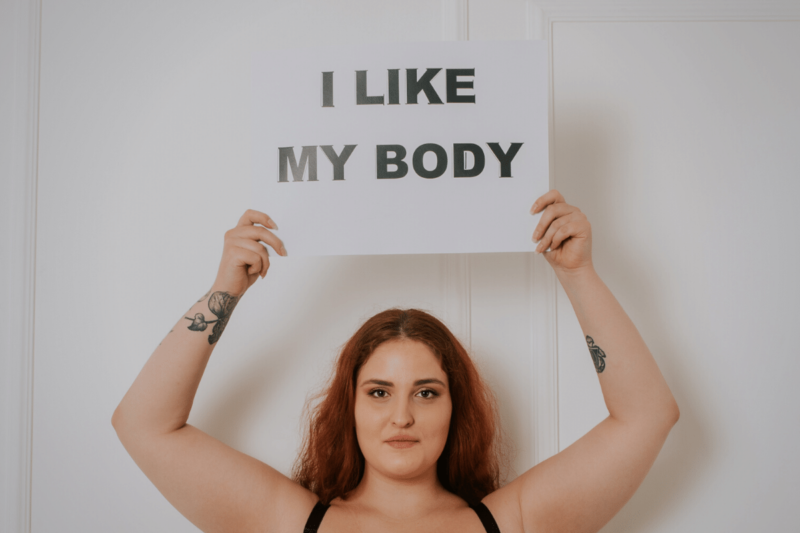
When body positivity becomes toxic positivity
Another problematic aspect of body positivity is the idea that we should love our bodies. All the time! (Wait…you don’t? What’s wrong with you?)
This is an idea that has also come from the movement being co-opted. Let’s get real: Even if you feel good about your body (even love it) most of the time, you are not going to feel that way all the time. There are going to be days where you look and the mirror and think, “Ugh.” There are going to be days when you feel stiff or sore and definitely not in love with your body.
If you have come to believe that you are supposed to feel positive about your body all the time, then on those days you don’t you’ve just discovered another way to feel like you’ve failed. It’s like diet culture déjà vu.
Shifting the frame
Because of the problems I just mentioned, many advocates of a truly expansive and inclusive view of body positivity (including Health at Every Size advocates) have suggested other words to help reframe what is actually a very health-promoting idea (more on this in a moment):
- Body neutrality can feel like a do-able first step for those who have spent years (or decades) seriously berating their bodies. It’s a shifting away from body hate to literally feeling just neutral. Not hate, not love, but the space in between. Think of it as a resting place, or a landing pad, while you consider the next step in your journey, while you move away from talking about weight and making decisions based on how it might affect your weight.
- Body respect shifts from your body’s appearance to its function. Each of us has a body to carry us through life (although how this looks varies based on our individual physical abilities) and that is an amazing thing.
- Body acceptance is similar to body neutrality in some ways, but I think acceptance is more peaceful, probably because the notion of acceptance is part of mindfulness (including mindfulness meditation).
- Body liberation is freedom from other people’s expectations about your body (“other people” could be specific people, or society at large). It leaves room for you to love your body, but doesn’t require it. It rejects the idea of beauty standards — including “ideal” body sizes — serving as social currency.
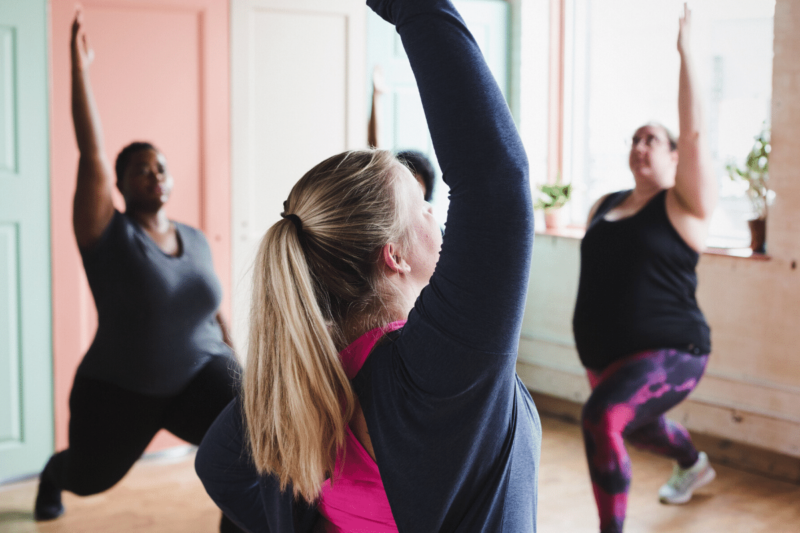
But is it bad to feel good about your body?
The idea of body positivity in its various forms has been gaining traction as more people are rejecting the idea of weight loss dieting and society’s beauty and body standards. But today’s “flavor” of body positivity is conditional on adhering to less rigid (but still present) set of appearance and behavior standards, which has allowed it to become entangled with diet and wellness culture.
The body positivity movement has been criticized for “normalizing” or even “glorifying” being fat. (Note that I use “fat” as a neutral descriptor, like tall or short or brunette.) Something I hear way, WAY too often is this: “If fat people feel too good about their bodies, they won’t try to lose weight.”
Let me dissect the idea that being “too” body positive could dissuade people from losing weight, and that this could impair their health.
- This argument ignores the health impacts of anti-fat bias, which is a systemic and societal problem, and the internalized anti-fat bias that can follow.
- Research shows that when we feel bad about the size or shape of our bodies, not only is this not good for our mental and physical health, but when people feel bad about their bodies, they are LESS likely to engage in health-promoting behaviors and MORE likely, statistically speaking, to engage in unhealthy behaviors.
Are you getting a sense that poor body image is a bad, bad thing?
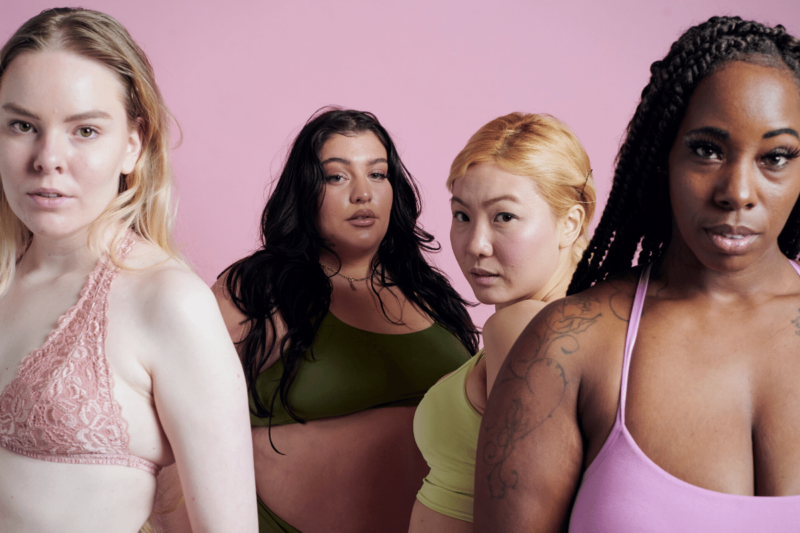
Time for a truth bomb
Here’s another way to think about it: How much care, compassion and affection do you show to people you like (or love), vs. people you dislike (or hate)? If you hate your body, and by extension yourself,* how well are you going to care for yourself?
*As common as it is to go through the world like our heads and our bodies exist separately, the unfortunate fact is that our feelings about ourselves are often driven by our feelings about our bodies…just ask anyone who’s stepped on a scale and not liked the number they see).
This seems like a good spot to offer the idea of radical self-love. In her book, “The Body Is Not An Apology: The Power of Radical Self-Love,” Sonya Renee Taylor writes:
“Radical self-love is deeper, wider, and more expansive than anything we would call self-confidence or self-esteem. It is juicier than self-acceptance. Including the word radical offers us a self-love that is the root or origin of our relationship to ourselves. We did not start life in negative partnership with our bodies. I have never seen a toddler lament the size of their thighs, the squishiness of their belly. Children do not arrive here ashamed of their race, gender, age or differing abilities. Babies love their bodies! Each discovery they encounter is freaking awesome. Have you ever seen an infant realize they have feet? Talk about wonder!”
Keep learning and growing
If you’re looking for additional resources, here’s where I would start:
- “More Than A Body: Your Body Is an Instrument, Not an Ornament” by Lindsay and Lexie Kite
- “The Body Is Not An Apology: The Power of Radical Self-Love” by Sonya Renee Taylor
- “Reclaiming Body Trust: A Path to Healing and Liberation” by Hilary Kinavey and Dana Sturtevant
- “Body Respect” by Lindo Bacon and Lucy Aphramor
- “Intuitive Eating: A Revolutionary Anti-diet Approach,” by Evelyn Tribole and Elyse Resch
- “Body Talk: How to Embrace Your Body and Start Living Your Best Life” by Katie Sturino
- “Beyond Beautiful: A Practical Guide to Being Happy, Confident and You in a Looks-Obsessed World” by Anuschka Rees
- “It’s Always Been Ours: Rewriting the Story of Black Women’s Bodies” by Jessica Wilson
- “Fat Girls in Black Bodies: Creating Communities of Our Own” by Joy Cox
This post contains Amazon Affiliate links. As an Amazon Associate I earn from qualifying purchases.
Carrie Dennett, MPH, RDN, is a Pacific Northwest-based registered dietitian nutritionist, freelance writer, intuitive eating counselor, author, and speaker. Her superpowers include busting nutrition myths and empowering women to feel better in their bodies and make food choices that support pleasure, nutrition and health. This post is for informational purposes only and does not constitute individualized nutrition or medical advice.
Seeking 1-on-1 nutrition counseling? Carrie offers a 6-month Food & Body program (intuitive eating, body image, mindfulness, self-compassion) and a 4-month IBS management program (low-FODMAP diet coaching with an emphasis on increasing food freedom). Visit the links to learn more and book a free intro call to see if the program is a good fit, and if we’re a good fit!
 Print This PostOriginal Article
Print This PostOriginal Article


